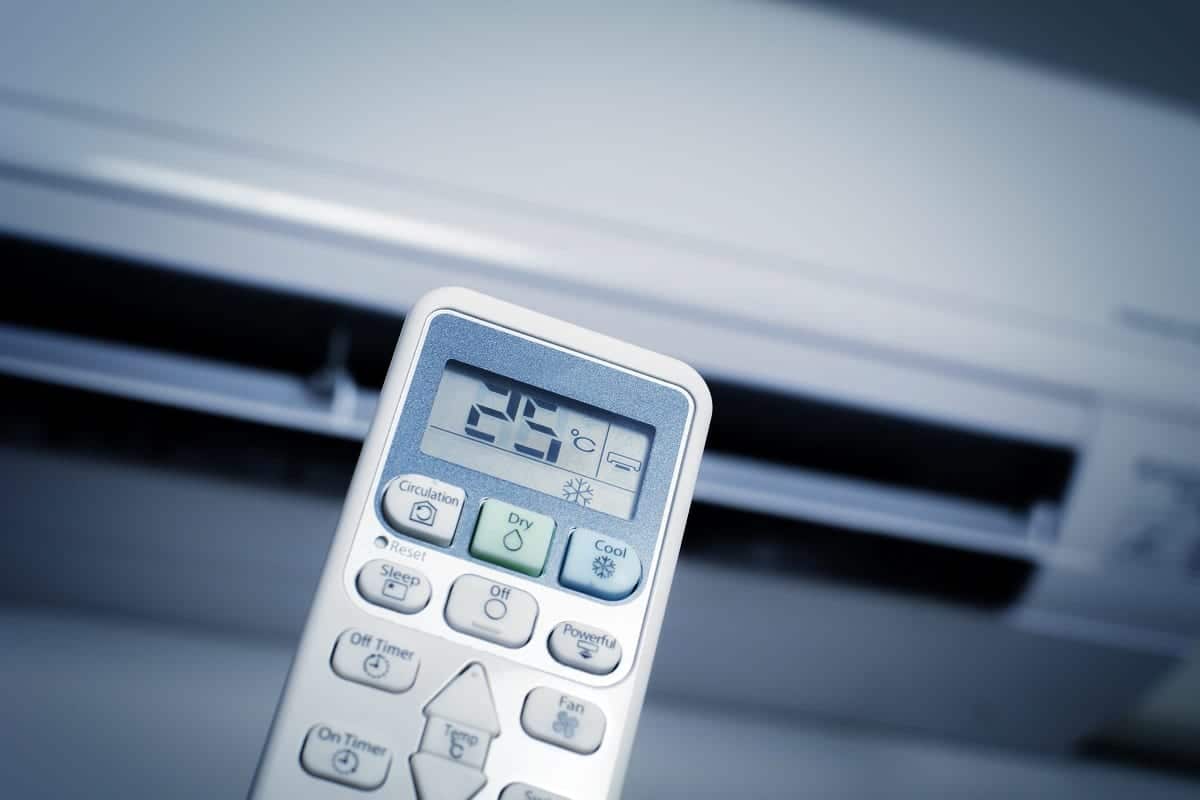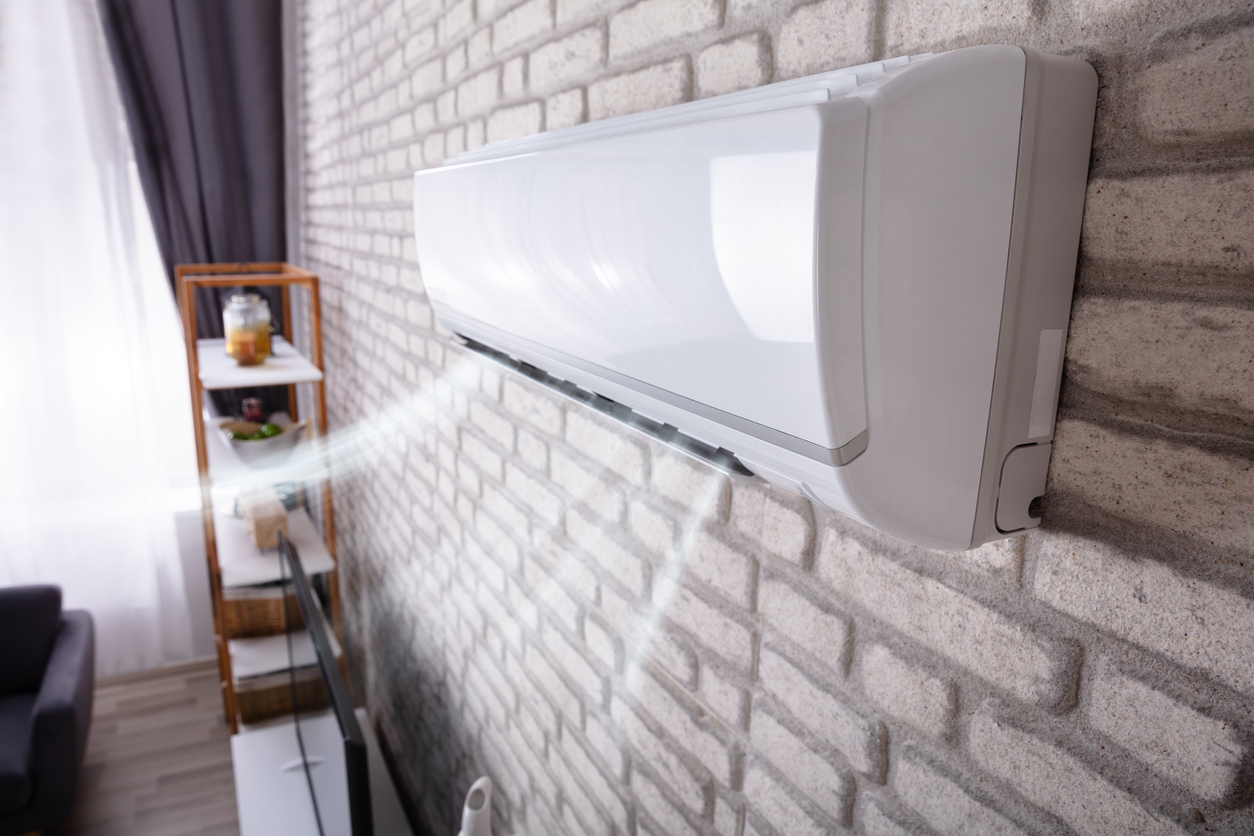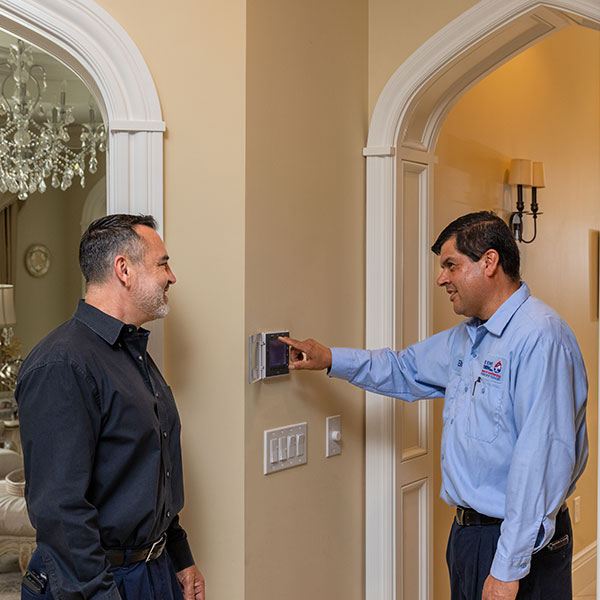There are many ways to heat the home. And while there is no right way for every home and family, there usually is a “best” type of heating depending on the homeowners’ needs and home layout. Many homes are already set up for central heating and air condition, while others do not have the capacity for ducting and will need something that does not require preinstalled ductwork such as ductless mini-splits or wall heaters. When do homeowners know that a wall heater is a right furnace for them and what is a wall furnace?
What is a Wall Furnace?
Wall heaters are ideal for small spaces, in small homes or apartments, compact living areas and offices, as well as in many of San Diego’s older craftsman style homes.
Heating systems have been evolving since their invention. Wall furnaces became more common in the 1950’s as an alternative to baseboard heating or radiator style heating systems. While there are many homes across the country that still utilize both of those styles of heating their home, in San Diego, they are less common. However, wall furnaces are still very much in use and Bill Howe Plumbing has been the wall furnace experts since 1980.
Wall furnaces are installed directly into the wall and vented out through the home in single-story homes, and through the ceiling in multiple story homes. Plumbing Code requires wall furnaces to have new venting installed during routine replacements.
Although wall furnaces are small and compact, they heat very effectively. Wall furnaces are typically less expensive than traditional central heating, as well as the mini-split ductless units.
Wall furnaces house a pilot light, much like a water heater. They do require maintenance as well but are much easier to maintain by homeowners. Since they have a pilot light system, wall furnaces also can usually be repaired easily if something goes wrong, as there are parts that allow for easy service and repair versus total replacement.
Wall heaters produce heat through the wall heater and not a ducting system, so they will heat a small space quickly and maintain the heat in the room. Wall furnaces also have a thermostat so homeowners do not have to turn the system on and off each time they want to heat the space; the wall furnace thermostat will read the temperature in the space and turn on and off accordingly.
Are Wall Furnaces Safe?
For any appliance that utilizes natural gas, there are safety concerns all homeowners should take into consideration. Just like traditional central heating, wall furnaces have the potential to produce carbon monoxide gases as well as natural gas leaks.
It is important to only have a licensed specialist install wall furnaces to ensure proper venting. There are many reasons why a vented wall heater will leak dangerous gases including for seals and connections. By hiring a licensed contractor with experience in wall furnaces and gas lines, homeowners can be assured of safety. Licensed professionals will also permit the installation so that a city inspector and gas utility professional will perform a final inspection.
Homeowners with wall furnaces should also have carbon monoxide detectors installed in the space, as well as having the furnace tuned up by a professional HVAC or plumbing specialist each year before use. During an annual maintenance, much like on a traditional central heating system, a specialist will check for leaks, proper seals and connections as well as clean the burners and check for carbon monoxide.
Since there is no filter, it is important to keep the outer grating clean and clear form any furniture. Homeowners should ensure a three-foot clearance around the wall furnace and regularly dust with a damp cloth on a regular basis, but make sure the furnace is not operating while dusting. Homeowners can also vacuum the wall furnace, just be careful when using the nozzle and only do this with the front panel on and closed.
Homeowners can also inspect the flame when the unit is in operation through the front panel. Visually asses the flame and ensure it is a clean, crisp blue. If the flame is yellow or dull and dim, turn the unit off and schedule an inspection with a licensed plumber or heating specialist.
Some wall furnaces run off electricity versus gas. While these are safe from carbon monoxide, they do still require care as the heat coils can become dirty and pose fire risks.
Are Wall Furnaces Expensive?
Wall furnaces are much less than central furnaces and ductless systems, but they are also only ideal in small spaces such as a room in the home or a small apartment or condominium. Many of the craftsman style homes in San Diego were built with either wall furnaces or a floor furnace. Bill Howe does not service or replace floor furnaces, and typically recommends upgrading to a central or ductless system, or in ideal spaces, simply replacing an old floor furnace with a wall furnace. If the homeowner has not replaced these systems, replacing their wall furnace(s) with new ones versus a central system or ductless will be a breeze.
Wall furnaces are approximately $1800-2500, depending on the venting. They are a fraction of the cost of traditional systems and a great way to stay warm in the San Diego winter. Wall furnaces are especially convenient for folks who do not want to invest in a larger system for the few cold months San Diego experiences. But, they are not efficient systems for larger spaces or open floor plans.
When homeowners are ready to replace their outdated wall furnace, contact Bill Howe. Wall furnaces are installed by licensed and trained plumbing professionals. Since 1980, Bill Howe specialists have been professionally installing wall furnaces for homeowners. Bill Howe Plumbing offers free estimates to replace the wall furnace, and in some cases can diagnose issues on non-working wall furnaces during a free inspection.
Call 1-800 BILL HOWE (245-5469) today!




